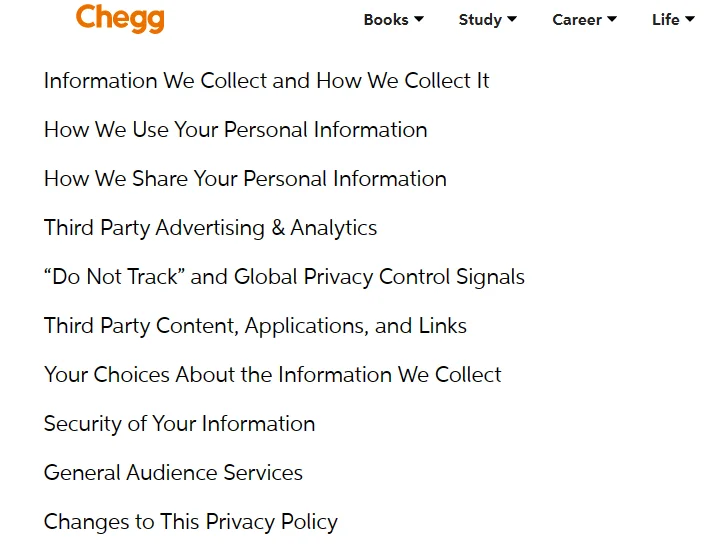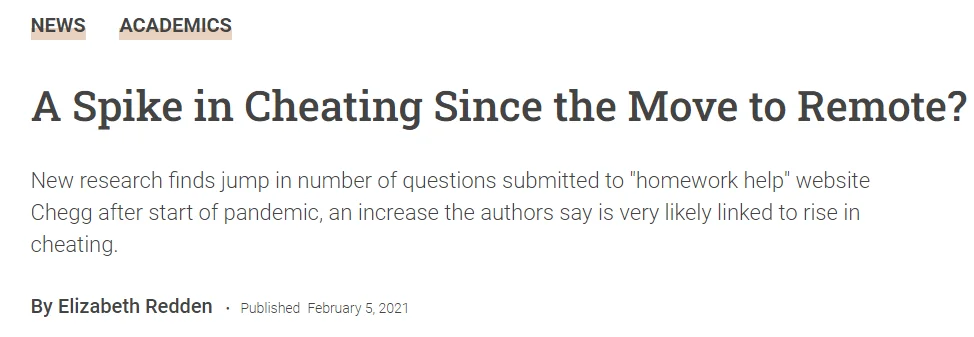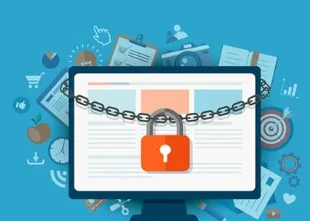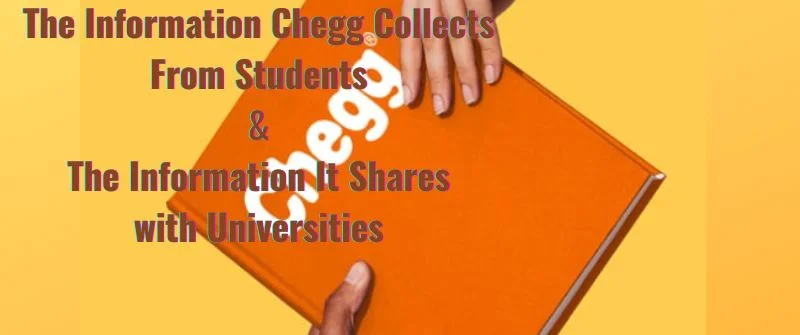Chegg is a platform that offers various services to students, including textbook rentals, homework help, and online tutoring. One of the common concerns among students using Chegg is whether they can notify the school of their usage.
Chegg states that they prioritize their users’ privacy and do not share personal information with third parties without the user’s consent.
However, there have been occasions where schools have taken action against students for academic dishonesty based on evidence obtained from Chegg.
Does Chegg Notify your School?
Chegg has become a popular resource for students seeking homework help, textbook solutions, and tutoring services. However, many students are worried about whether their school or university will detect their use of Chegg.
Chegg does not notify your school or even snitch on you because they do not expect you to cheat using their platform. Also, they uphold confidentiality and cannot share your usage. They should protect their users’ privacy and not share personal information with third parties without consent. However, Chegg offers user data to schools and law enforcement when legally required.

However, there have been cases where schools have taken disciplinary action against students for academic dishonesty.
They do this if they catch you or based on evidence obtained from Chegg if they do so.
This happens if you get caught using Chegg to cheat or using their answers and submitting them.
Some instructors sometimes see Chegg’s answers as too similar to their students’ submissions, leading to suspicion of cheating.
While Chegg prioritizes its users’ privacy, your school may find out about your use of Chegg, particularly if they suspect academic dishonesty. It is vital to use Chegg responsibly and ensure you are not violating your school’s educational integrity policies.
Common Chegg Cheating Investigations Reported in the Media
Chegg has faced scrutiny from universities and the media for its role in facilitating academic cheating. Here are two examples of investigations that appeared in the US media:
“Chegg is now a Key Player in the Student Cheating Epidemic Plaguing Higher Education” – Inside Higher Ed
The article discusses the growing problem of academic cheating and Chegg’s role in facilitating it. Chegg is known for its online textbook rental and tutoring services.
Still, it also offers a homework help service where students can submit questions and receive answers from subject matter experts.
While the service helps students understand difficult concepts, students use it to cheat on homework assignments and exams. The article cites a survey of 1,500 students, which found that nearly half of them had used Chegg’s homework help service to cheat.

The article also highlights the challenges universities face in detecting and preventing cheating on online exams, which can get proctored remotely using video and audio monitoring software.
“Chegg Cheating Allegations Rock Universities” – The Chronicle
The article reports on an investigation into cheating at the, where students were found to be using Chegg to cheat on exams.
The university’s academic integrity office discovered that students accessed exam questions and answers using the platform. Some students even created fake Chegg accounts to share information.
The article notes that cheating using online resources like Chegg has become more common during the COVID-19 pandemic as universities have shifted to online learning and remote exams.
The article also highlights the difficulties universities face in detecting and punishing cheating, as online resources like Chegg can be difficult to monitor and regulate.
These investigations illustrate the challenges universities face in detecting and preventing cheating in the digital age and the role that online platforms like Chegg can play in enabling and facilitating academic dishonesty.
While Chegg provides legitimate educational resources and services, universities must be vigilant in monitoring and regulating their use to prevent cheating.
Information the Chegg collects from Students

Chegg collects various types of information from students who use its platform like
- Personal information: They include personal data like the user’s name, email address, phone number, and billing information.
- Usage information: Chegg collects information about how users interact with its platform. Such details include the pages they visit, the resources they access, and how long they spend on the site.
- Device information: Chegg collects information about the user’s devices to access its platforms. Specifically, they include the device type, operating system, and browser version.
- Location information: Chegg may collect information about the user’s location. This data includes the country, state, and city.
- Communications: Chegg may collect information from any communications between users and the Chegg team. This category includes support requests or feedback.
- Payment Information: Chegg gets credit card numbers for your convenience. For example, if you forget your password, process payment for any fees associated with using our site or services.
- Subscriptions: If you choose to subscribe to a recurring subscription service through Chegg, like book rentals, they will automatically charge your credit card account each month until canceled by you.
Can Chegg share such Information?
Chegg’s strict privacy policy states they do not share users’ personal information with third parties without their consent, except when required by law.
Chegg may share user data with schools or law enforcement if they receive a legal request. Also, Chegg may use anonymous user data for research or marketing purposes.
Chegg users should be aware of the platform’s privacy policy and understand their activity on the site because it may be subject to legal or institutional scrutiny.
To avoid such exposure, some students do use Chegg but anonymously. Others search online for free Chegg answers without necessarily accessing their website.
Instances when websites disclose user information

- Court order: Chegg may share user information through a court order. They may respond if it is required to do so by law.
- Investigation authorities. It is for protection against fraud. Chegg may share user information to prevent or investigate suspected fraudulent activity or violations of its terms of service.
- Third-party service providers: Chegg may share user information with third-party service providers, such as payment processing or customer support, who perform services on its behalf.
- Prior agreement with institutions: If Chegg is involved in a merger, acquisition, or sale of assets, user information may get transferred as part of the transaction.
- Safety and Security: Chegg may disclose user information if they believe it is necessary to protect users’ safety and security, prevent or investigate potential fraud or other illegal activities, or enforce their terms of service.
- User consent: Websites may disclose user information if the user has given explicit permission to do so, such as when signing up for a service requiring sharing information with third-party partners.
